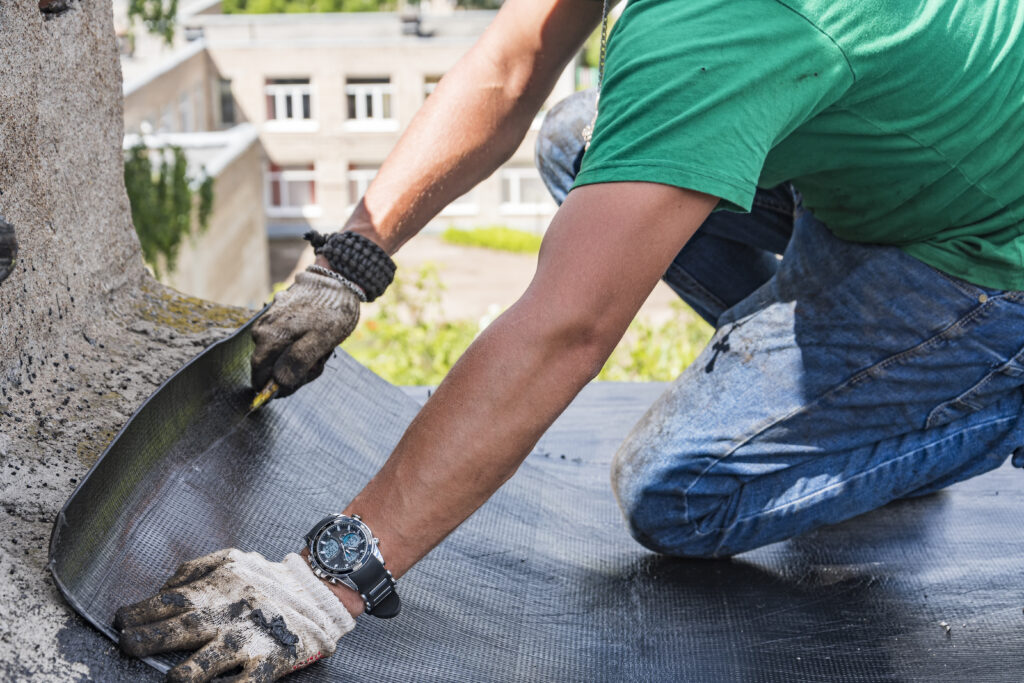Best Roofing Hand Tools to Use on the Job in 2025

Table of Contents
- Before You Get Started: What to Know Before You Buy
- Basic Hand Tools (Price Range: $245–$650)
- Power Tools (Price Range: $295–$665)
- Commercial Roofing Tools (Price Range: $1505–$6665)
- Safety Tools (Price Range: $345–$925)
- Business Management Tools
- Stores to Buy Roofing Tools & Safety Gear
- Ready to Get Roofing?
- FAQs about Roofing Hand Tools
Roofing is tough on gear and tougher on you if you’re working with tools that aren’t built for the job. This guide is a full breakdown of what tools actually work, what holds up under pressure, and what’s worth having in your truck.
If you’re pricing a new setup or just upgrading after a few rough seasons, this article will help you figure out what you need (and what you can skip). Better tools mean faster installs, fewer headaches, and smoother days on site.
In this article:
- Smart buying tips before you stock your kit
- The core hand tools every roofer should own
- Power tools, commercial roofing gear, and safety essentials
- Where to buy quality tools
- How to manage estimates and invoices efficiently

Before You Get Started: What to Know Before You Buy
Not all tools are built to survive the daily grind of roofing. Between the heat, the height, and the heavy lifting, you need gear that can keep up. Before you invest, consider:
- Durability: Opt for reinforced handles, rust-resistant finishes, and shockproof materials.
- Weight: Lightweight tools reduce fatigue, especially when climbing ladders or working on slopes.
- Grip and safety: Non-slip handles, locking blades, and ergonomic design are worth it.
- Work type: Residential asphalt shingles, metal roofing, flat commercial roofs — your tool needs vary.
Want to run a successful roofing business but not sure where to start? Start with our 10-step roofing business guide.
Basic Hand Tools (Price Range: $245–$650)
These tools cover everything from tear-off and prep to install and cleanup. Think of them as your daily go-tos on the job.
1. Metal Snips
Use them to cut through flashing and metal trim. Choose left, right, and straight-cut versions depending on the job.
2. Roofing Hatchet
Doubles as a hammer and shingle cutter. Some include gauges to help with consistent shingle spacing.
3. Hammer Stapler
Quick way to fasten underlayment. Look for heavy-duty models with jam-resistant designs.
4. Roofing Shovel
Built for tearing off shingles and nails. Serrated blades and reinforced handles save time (and your back).
5. Roofing Cement Tube
A must for sealing around vents, flashing, or nail heads. Comes in handy for quick patches and detail work.
6. Pry Bar
Helps remove old shingles and nails. A flat bar with a wide claw is ideal for minimal damage during tear-off.
7. Straight-Blade Utility Knife

For cutting felt, shingles, and roll roofing. Keep a stash of blades on hand as you’ll go through them quickly.
8. Hammer
A solid claw or framing hammer is a staple. Use it for nails, demo work, and general construction.
9. Galvanized Roofing Nails
Corrosion-resistant and made to handle high wind areas. Most professionals will tell you not to skimp. Buying cheap nails costs more in the long run.
10. Chalk Line
Keeps your rows straight. Crucial for shingle layout and avoiding rework.
11. Tape Measure
Sounds basic, but a reliable tape with a sturdy lock is a roofer’s best friend.
12. Framing Square
Helps with layout, cuts, and aligning edges, especially around vents and valleys.
13. Wheelbarrow
For hauling shingles, tools, and debris. Flat-free tires and a reinforced tray will save you over time.
14. Broom
Keeps your deck clean before install. Less debris = better adhesion.
15. Tool Belt
Keeps everything you need at your side. Go for reinforced stitching and adjustable straps.
Remember: You don’t need every tool on the market. You just need the right ones for your work.
Power Tools (Price Range: $295–$665)
These tools speed things up and reduce manual wear, especially for longer installs or commercial work.
16. Pneumatic Nail Gun
Fast, consistent, and reliable. You’ll move through shingle rows faster than with hand nailing.
17. Cordless Drill
Ideal for decking, flashing, or any quick fix. Cordless means more freedom, less hassle.

18. Roofing Nailer
Built specifically for roofing materials. Expect depth control, reload ease, and fewer jams.
19. Angle Grinder
For cutting metal or grinding down nails and fasteners. Always use a guard.
20. Battery-Powered Blower
Blow off debris before install or clean up fast when the job’s done.
Commercial Roofing Tools (Price Range: $1505–$6665)
For flat roofing or large-scale commercial installs, you’ll need tools that go beyond the basics.
21. Hot Air Welder
Used for heat-welding membrane seams. A go-to for TPO and PVC systems.
22. Metal Cutter Shear
Lets you slice through metal panels without warping or bending them.
23. Propane Torch
Needed for torch-down roofing. Always follow safety protocols and local codes.
24. Roof Seam Roller
Applies pressure to welded seams, removing air pockets and improving adhesion.
25. Adhesive Spray Gun
Useful for bonding insulation and membranes. Saves serious time over buckets and rollers.
26. Ladder Hoist
Moves shingles or rolls of felt to the roof without exhausting your crew.
Safety Tools (Price Range: $345–$925)
You can’t afford to cut corners on fall protection. These tools keep you safe and compliant.
27. PPE (Personal Protective Equipment)
Gloves, boots, hard hats, and safety glasses. Use gear that fits and holds up to daily wear.
28. Safety Harness & Fall Protection Kit

A must for any job with elevation. Look for full-body harnesses and shock-absorbing lanyards.
29. Rope Grab
Used with vertical lifelines to control descent and lock in during a fall.
30. Roof Jacks
Hold planks steady on steep pitches. Create flat footing and safer movement.
31. Extension Ladder
Choose one that’s job-rated, sturdy, and has stabilisers or hooks.
Business Management Tools
The right gear keeps you safe. The right software keeps you paid.
32. Invoicing Software
Use Invoice Fly’s Invoice Maker to create and send professional invoices, track payments, and stay organized on the go.

Stores to Buy Roofing Tools & Safety Gear
- Home Depot / Lowe’s (general supplies)
- ABC Supply or Beacon Roofing Supply (specialist distributors)
- Online retailers for hard-to-find commercial tools
- Safety gear suppliers for OSHA-compliant kits
Also worth checking: our guide to getting roofing insurance in 2025.
Ready to Get Roofing?
Every tool on your belt has a job. So should the tools you use to run the business side. Whether you’re pricing a reroof or chasing a late payment, the right system keeps things moving.
Invoice Fly’s Invoice Maker lets you send quotes, convert them to invoices, and track payments in one place. It means you can stay focused on the work, not the paperwork.
FAQs about Roofing Hand Tools
Roofing nailers are built for high-speed shingle installs and use coil nails. They’re lighter, faster, and more precise than standard framing nailers.
Yes—left, right, and straight snips help you cut curves and angles cleanly around vents, flashing, and drip edges without damaging materials.
If you’re hauling shingles or heavy materials up more than one storey, a ladder hoist saves time, reduces injury risk, and keeps jobs moving.
At minimum: gloves, safety glasses, slip-resistant boots, and a hard hat. For pitched roofs, always use a harness and fall protection kit.
For small jobs, general tools work. But if you’re roofing regularly, specialized tools save time and reduce strain.
Start with trusted retailers like ABC Supply, Home Depot, and local distributors. You can also buy used or refurbished tools but it’s best to check condition and warranty first.
